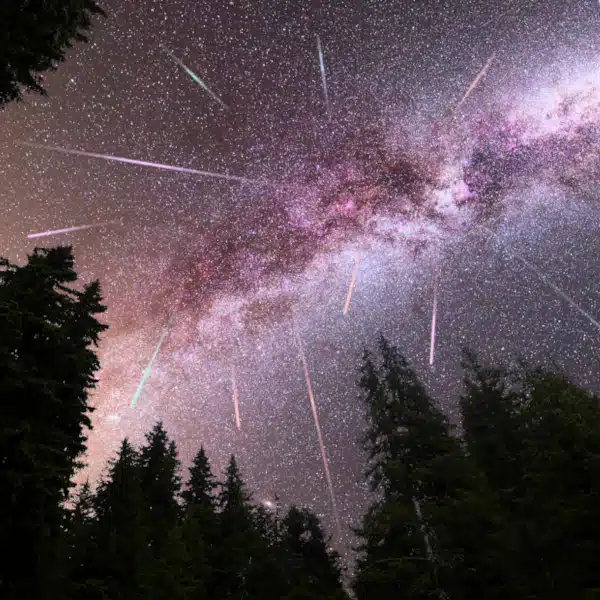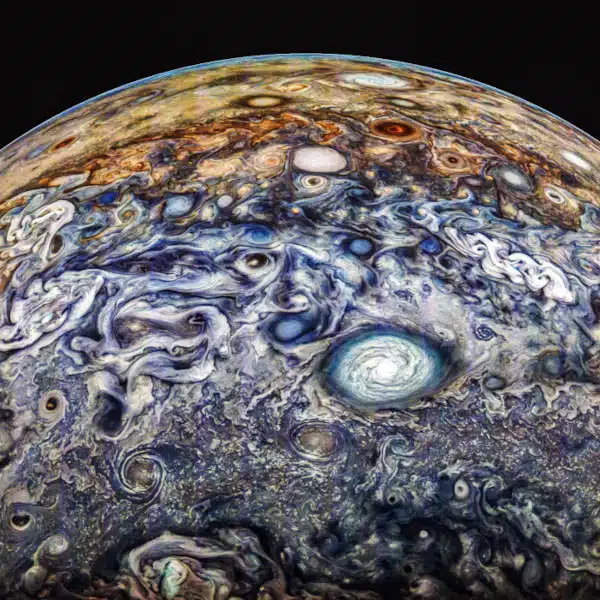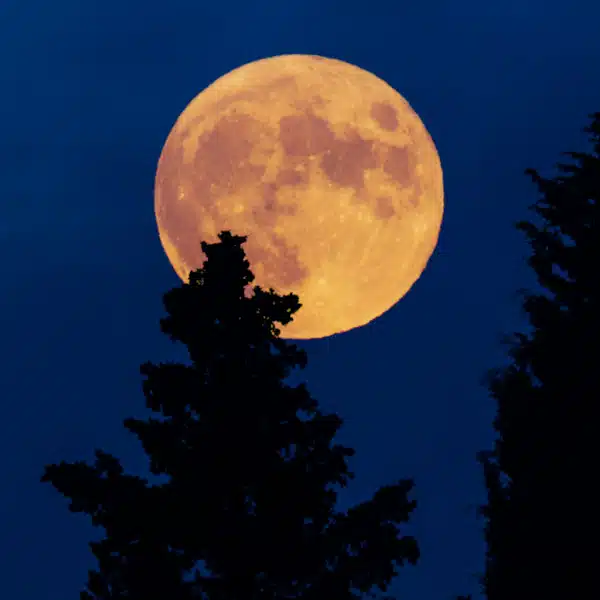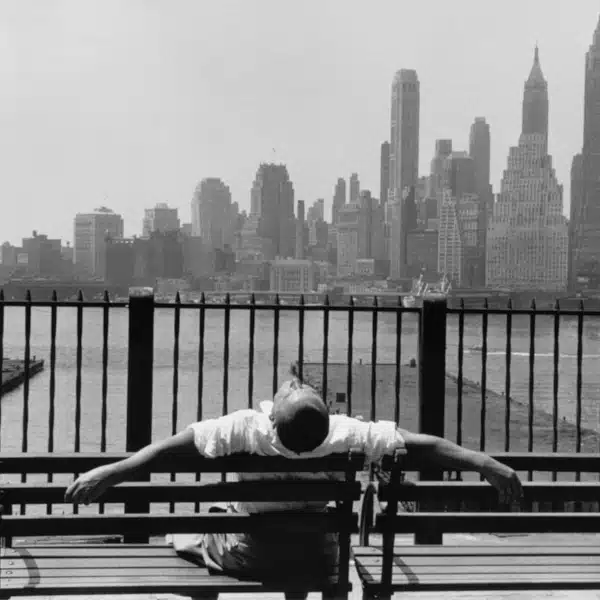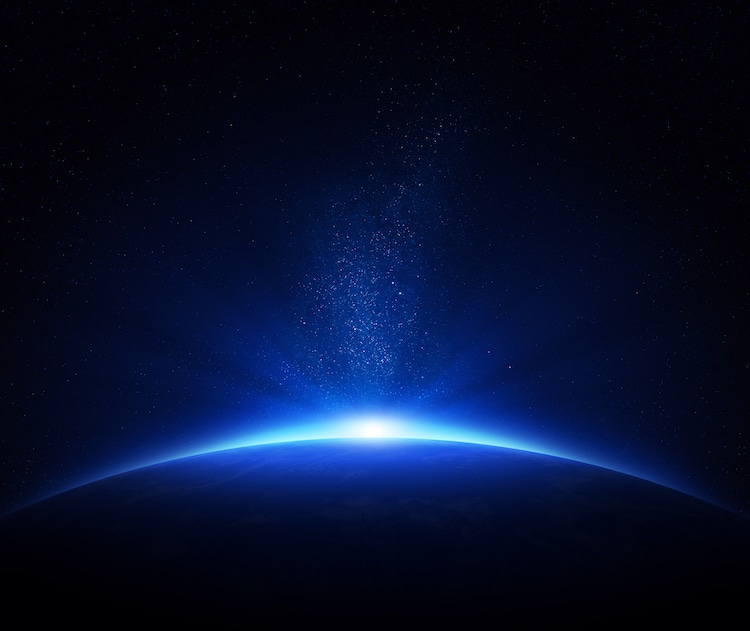
Photo: JohanSwanepoel/Depositphotos
This post may contain affiliate links. If you make a purchase, My Modern Met may earn an affiliate commission. Please read our disclosure for more info.
Ever since he played Captain Kirk in the Star Trek franchise, William Shatner's name has been synonymous with space. So, it wasn't a surprise to hear that the 91-year-old old actor was among those aboard Jeff Bezos' Blue Origin space shuttle when it made its second flight in October 2021. At the time, Shatner described the journey as “the most profound experience I can imagine.” But in his new book, Boldly Go: Reflections on a Life of Awe and Wonder, Shatner goes into more detail about his time in space. What he has to say might surprise you.
An excerpt of the book published by Variety reveals that the Canadian actor's visit to space did not impact him quite how he thought it would. His trip made him—then 90 years old—the oldest living person to travel into space, and, initially, he was quite nervous. Understandably, Shatner was cognizant that things could go wrong, stating that, “I couldn't get the Hindenburg out of my head.”
But, he pushed through his fears and settled in for the journey. Shatner recalls his first moments of experiencing weightlessness and how others on the trip immediately started enjoying its effects. But for Shatner, something else was more important. “I wanted, needed to get to the window as quickly as possible to see what was out there,” he writes in the book, which was released on October 4.
Shatner's love for the universe runs deep and he has long been fascinated by its mysteries. But as he turned his head to look out into space, an unexpected sensation washed over him. “When I looked in the opposite direction, into space, there was no mystery, no majestic awe to behold…all I saw was death,” he recalls.
“I saw a cold, dark, black emptiness. It was unlike any blackness you can see or feel on Earth. It was deep, enveloping, all-encompassing. I turned toward the light of home. I could see the curvature of Earth, the beige of the desert, the white of the clouds and the blue of the sky. It was life. Nurturing, sustaining, life. Mother Earth. Gaia. And I was leaving her.”
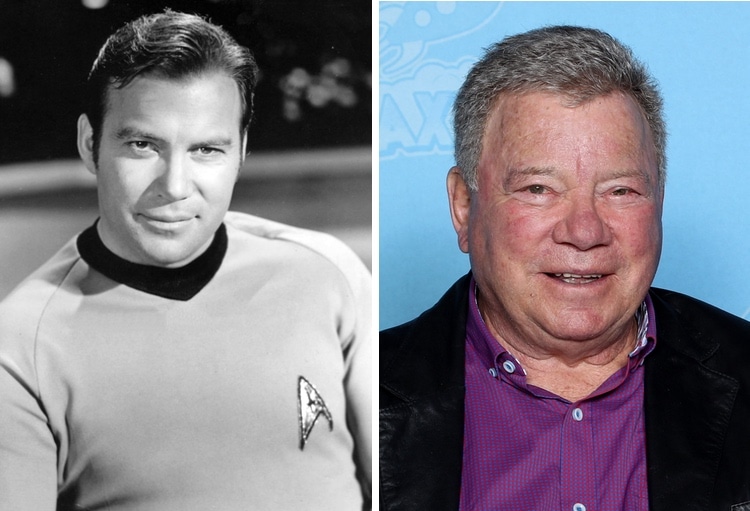
Left: William Shatner as Captain Kirk from in Star Trek. (Photo: NBC Television via Wikipedia) | Right: William Shatner in 2020. (Photo: Super Festivals via Wikimedia Commons, CC BY 2.0)
It was then that Shatner realized that what he previously envisioned was all wrong. He'd thought that, by going into space, he'd have a deeper understanding of the connection between all living things. Instead, looking into the black abyss of space filled him with grief. In fact, he calls it “among the strongest feelings of grief I have ever encountered.” The actor says, “The contrast between the vicious coldness of space and the warm nurturing of Earth below filled me with overwhelming sadness.” He adds, “My trip to space was supposed to be a celebration; instead it felt like a funeral.”
Later, Shatner would discover that he was not alone in his feelings. What he had experienced was something called Overview Effect. Experienced by astronauts like Michael Collins, Yuri Gagarin, and Leland Melvin, this cognitive shift is described by researchers as “a state of awe with self-transcendent qualities, precipitated by a particularly striking visual stimulus.”
Overview Effect is a transformative experience that can bring a greater appreciation for Earth as a whole and is characterized by overwhelming emotions. Shatner, for his part, found deep comfort in looking back at Earth, which provoked deep sadness when he thought of the destruction happening to the ecosystem at the hands of humans.
Later, once Shatner had a better understanding of what he'd experienced, his feelings shifted. He writes that, ultimately, the experience “reinforced tenfold my own view on the power of our beautiful, mysterious collective human entanglement, and eventually, it returned a feeling of hope to my heart.” He realized that we, as humans, are insignificant, but that by being aware of this, we also have the chance to rededicate ourselves to the planet and change its future.
Read the entire excerpt of Shatner's experience in space on Variety or pick up the entire series of essays, where he reflects on the interconnectivity of all things.
Related Articles:
Richard Branson Rockets Into Outer Space in First Commercial Space Flight
82-Year-Old Wally Funk Will Join Jeff Bezos in Blue Origin’s Space Launch
NASA Astronaut Is Sharing Amazing Photos From His Spacecraft Window Seat
Virgin Galactic Unveils Its Spaceship III, Bringing Us One Step Closer to Space Tourism











































































